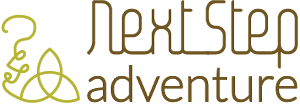Sleep Out for Reggie
As the weather gets colder, I feel more and more sympathy for the homeless people I see on the street. A few years ago, a young homeless man named Reggie died in Des Moines, bringing much needed attention to the problem of youth homelessness. Searching for more information about the problem, I found these three shocking statistics–
- More than 1.3 million children are homeless at some time each year in the United States.
- 1 of every 8 kids under 18 in the U.S. will become homeless.
- 12-17 year olds are at more risk of becoming homeless than adults are.
The Iowa Homeless Youth Centers have sponsored Reggie’s Sleepout to raise awareness and funds for homeless youth for about four years. The 2009 event will be held October 24-25 at Drake Stadium. They need volunteers of all kinds to make the event a success and raise money to help kids who don’t have a place to live. Your group can volunteer to help organize or can get pledges and sleep out. Download more information about how Chrysalis After-School groups can help–Volunteer Opps Reggies Sleepout.
Participants at the sleepout make boxes into temporary shelters, listen to live music, play games and eat. If you’re interested in finding out more and volunteering, go to ReggiesSleepout.org.










